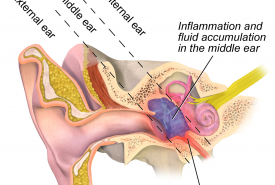Whooping Cough is Back: New Strategies to Protect New Babies
admin
Tue, 07/08/2014 - 15:07
The last few years have seen a resurgence of vaccine-preventable diseases in the United States. Whatever the cause of this may be, increasing incidence of these diseases poses a particular risk to patients who are not able to receive the vaccines, including babies less than 3 months of age. Pertussis (“whooping cough”) is especially dangerous in this population, with infants comprising the majority of pertussis-related cases and deaths in 2012 and 2013.1
Does Breastfeeding Alter the Risk of Asthma in Children?
admin
Mon, 11/26/2012 - 10:51
Asthma is a common chronic inflammatory disease of the airways characterized by recurring symptoms of reversible airflow obstruction and bronchospasm. Symptoms include wheezing, coughing, chest tightness and shortness of breath. A recent study in New Zealand has suggested that breastfeeding may indeed protect against the risk of asthma in children up to 6 years of age.
Maternal Probiotic Use during Pregnancy and Breastfeeding May Reduce the Risk of Eczema
admin
Mon, 11/12/2012 - 11:11
A recent study has suggested that use of probiotics in pregnancy and breastfeeding may reduce the risk of eczema in infants. Eczema, also known as atopic dermatitis, is the term broadly applied to a range of persistent skin conditions which include dryness and recurring skin rashes characterized by: redness, skin edema (swelling), itching, crusting, flaking, blistering, cracking, oozing, bleeding and areas of temporary skin discoloration.










